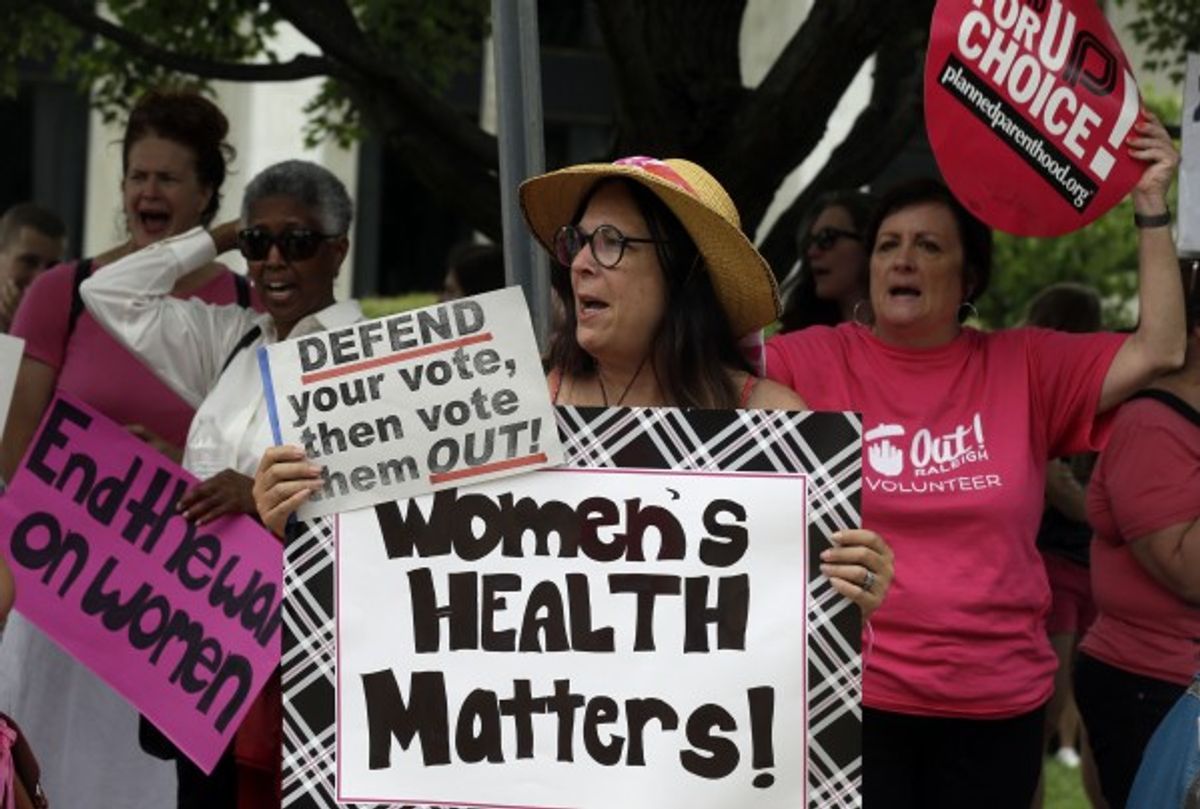In 2011, Oklahoma passed a law banning the “off-label” use of abortion-inducing drugs in an effort to derail women's access to non-surgical abortion in the state. Regulations mandated by the law prohibit doctors from deviating from the Food and Drug Administration-approved label instructions, despite the fact that doctors have found that these drugs are effective at lower doses and later into a pregnancy than indicated.
Oklahoma's law "effectively bans all abortions using medication," according to lawyers for the Center for Reproductive Rights, the group behind the legal challenge. Around 17 percent of abortions in the United States are medication-induced, and drugs like RU-486 are particularly vital in states like Oklahoma, which has few abortion providers.
A trial judge and the Oklahoma State Supreme Court both struck down the law as unconstitutional, but the state appealed to the U.S. Supreme Court, which agreed to review the case later this year. The ruling could have a major impact on the use of abortion-inducing drugs in Oklahoma, and the 15 other states that have passed nearly identical laws.
From Kate Sheppard at Mother Jones:
Part of what has abortion rights advocates worried is that 15 other states have also passed laws restricting medication abortions in the last few years. If the Supreme Court decides Oklahoma's law is okay, the other states' laws will likely pass constitutional muster, too. On Thursday, Texas became the latest state to limit medicine-induced abortions when Gov. Rick Perry signed a giant abortion bill into law. North Dakota's law is very similar to Oklahoma's, and that was struck down by a judge on Monday. Most of those laws, including Oklahoma's, are based on model legislation from Americans United for Life, an important legal arm of the anti-abortion movement. The group praised the US Supreme Court's decision to review the case as "historic..."
If the US Supreme Court eventually upholds the restrictions on abortion medications, it would be a big setback in Oklahoma, says Mallory Carlberg, a spokesperson for Oklahomans for Reproductive Justice. Oklahoma is a big, rural state with only two abortion providers—one in Norman and one in Tulsa—and women drive as much as four hours to see a provider. "I think it would hit low-income and rural people in the state the hardest," she says. "Already there are huge financial and geographic obstacles to obtain an abortion in the state. This would make it worse."

Shares